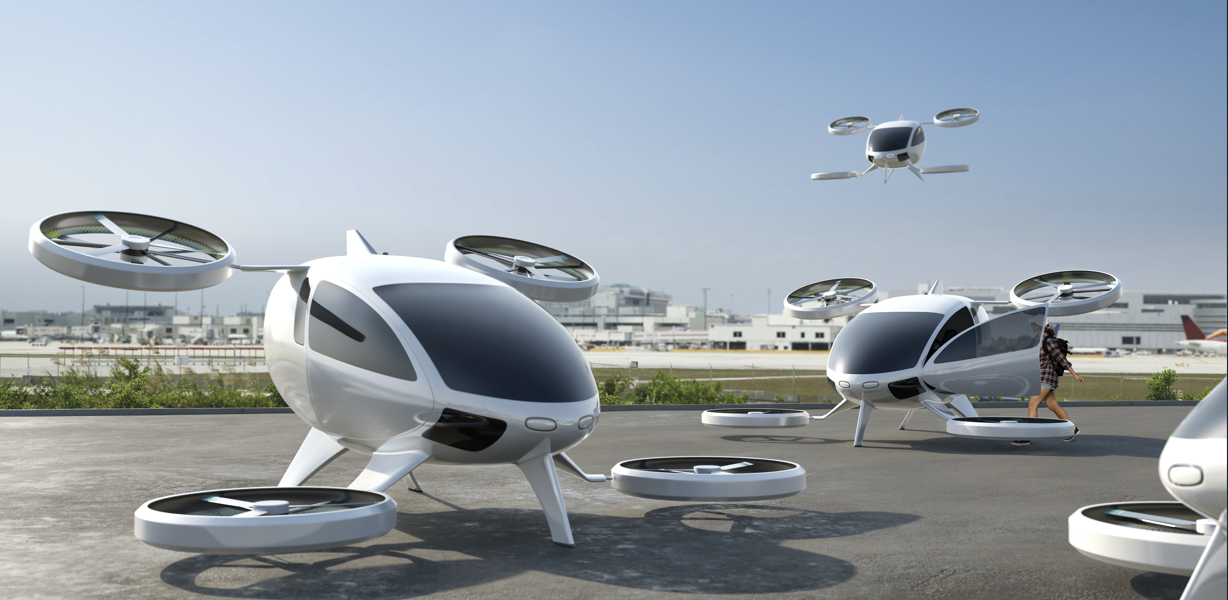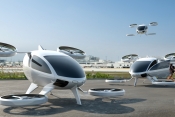Runways to Tomorrow: The High-Tech Future of Airports
Wednesday 1st October 2025
Global air traffic is set to surge from 4.5 billion today to 22.3 billion passengers annually by 2053, according to ACI World. Meeting this growth won’t just require bigger terminals—it will demand smarter, multimodal, seamless airports built around efficiency, personalisation, and sustainability.
“The airport of tomorrow should bring back the relaxed ease of pre-9/11 travel, while using biometrics and automation to make processes almost invisible,” says Max Groot of Momberger Airport Information. “Passengers can expect stress-free terminals, seamless movement and sustainability built into every stage of the journey.”
Biometric technology is already reshaping the passenger journey. Earlier this year Zayed International Airport in Abu Dhabi was hailed as the first international airport to introduce biometric identification at nine touchpoints—from check-in to boarding. This eliminates the need for paper documents and slashes wait times.
Baggage handling is also evolving. GPS-tracked luggage, off-site drop points, and automated systems will steadily become the norm reducing errors and anxiety for passengers. As SITA CEO David Lavorel notes, “Baggage must move with the same speed and reliability as passengers themselves.”
Automation is redefining the terminal experience. From robotic assistants like Munich Airport’s JEEVES snackbot, which was trialled last year, to AI-powered kiosks and virtual concierges, the future terminal will be intelligent and intuitive. Augmented Reality (AR) tools will offer real-time navigation and translation via wearables or smartphones.
Sustainability will also define the airport of tomorrow. Future terminals will double as “enerports”, generating their own solar power and hydrogen fuelling services. Meanwhile, rainwater harvesting, electric ground vehicles, biophilic design and even vertical gardens, such as those at Kempegowda International Airport in Bangalore, will create greener, more calming environments.
Comfort will rival that of luxury hotels. Passengers can expect the wider roll out of personalised services, quiet zones, spa areas, virtual reality (VR) games rooms and flexible seating arrangements. AI systems will manage disruptions in real-time, rebooking flights or redirecting passengers automatically.
Looking ahead, airports will evolve into multimodal mobility hubs—integrating high-speed rail, autonomous vehicles, and vertiports for electric air taxis. These "aerotropoli" will become destinations in their own right, blending travel, commerce, leisure and innovation.
Poland’s multimodal Centralny Port Komunikacyjny (CPK), due to open in 2032, exemplifies this future. Passengers will check in online, upload documents, and use biometrics throughout their journey—no passports, no boarding passes, just a facial scan. “CPK is being designed from the outset to evolve naturally into the airport of the future – an environment where convenience, security and efficiency are seamlessly combined ,” concludes Dariusz Kuś – CPK’s Board Member for Airport Investments.
The airport of the future won’t just move people—it will move with them. Seamless, sustainable, and smart, the transformation has already begun. Celebrating 25 years of driving airport innovation and global partnerships, this year’s inter airport Europe (7-9 October in Munich) provides the ideal platform to showcase and shape the next era of aviation.

The high-tech future of airports (photo credit: peepo via Getty Images)
Editor’s note
inter airport Europe is a must-attend event for the global airport industry, an exhibition and seminar event targeting airport operators looking to source airport equipment, technology and services for ground handling, terminal operations, airport IT and airport design.
The show has always attracted an international audience, offering in-depth perspectives on new and emerging technologies that will help airports streamline their infrastructure, systems, and processes whilst meeting rising costs and compliance, in line with the United Nations’ commitment (backed by 145 countries) to meet net zero carbon emissions by 2050.
About RX
RX is a global leader in events and exhibitions, leveraging industry expertise, data, and technology to build businesses for individuals, communities, and organisations. With a presence in 25 countries across 42 industry sectors, RX hosts approximately 350 events annually. RX is committed to creating an inclusive work environment for all our people. RX empowers businesses to thrive by leveraging data-driven insights and digital solutions. RX is part of RELX, a global provider of information-based analytics and decision tools for professional and business customers. For more information, visit www.rxglobal.com
Latest News

Thursday 12th February 2026
Air bp signs agreement with Airbus for aviation services and fuel supply in Europe

Wednesday 4th February 2026
Elfly Appoints Simon Bendrey To Lead Aircraft Design And Engineering As Noemi Enters Prototype Phase








Get Social
Twitter Linked in Facebook Instagram